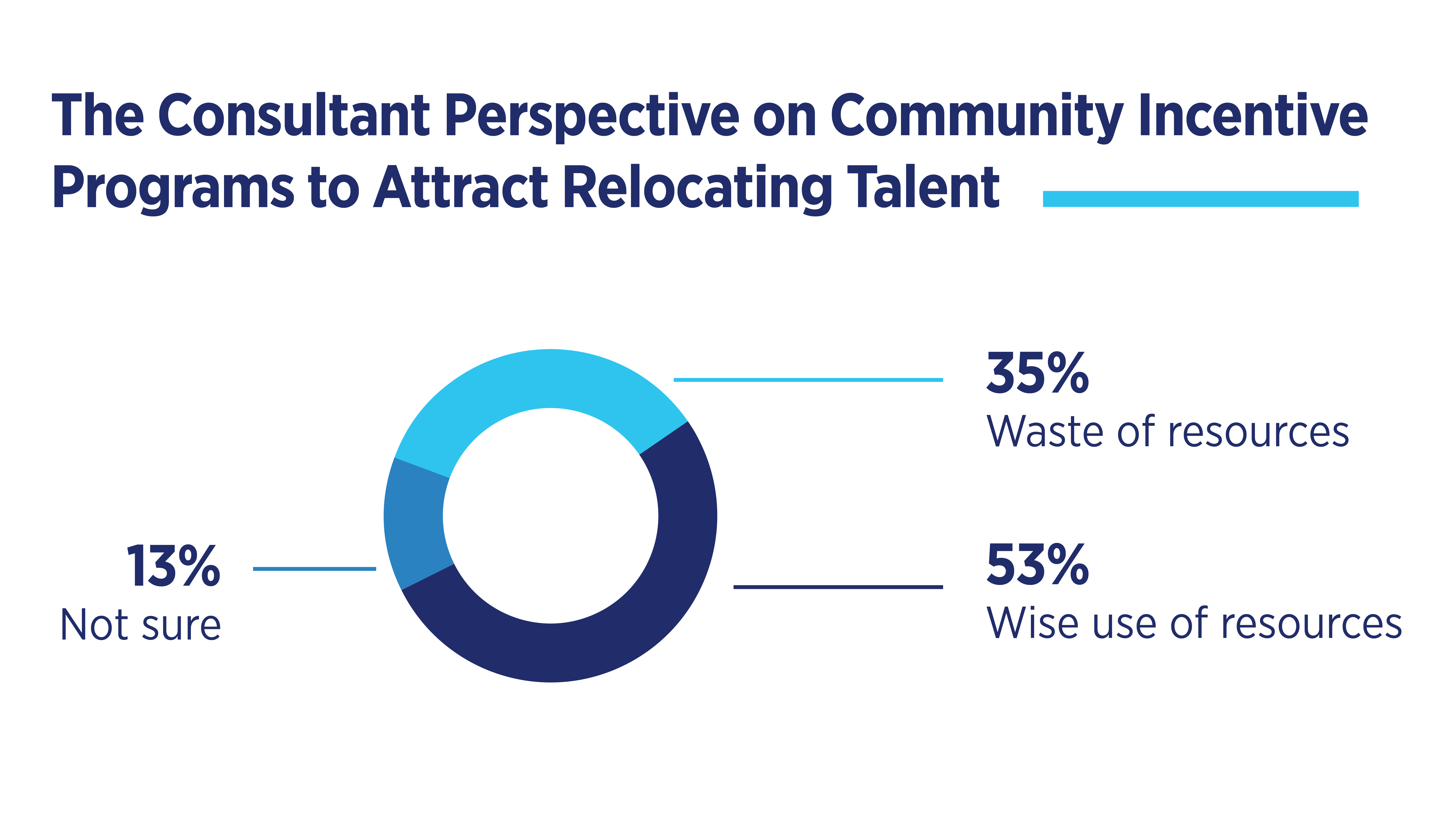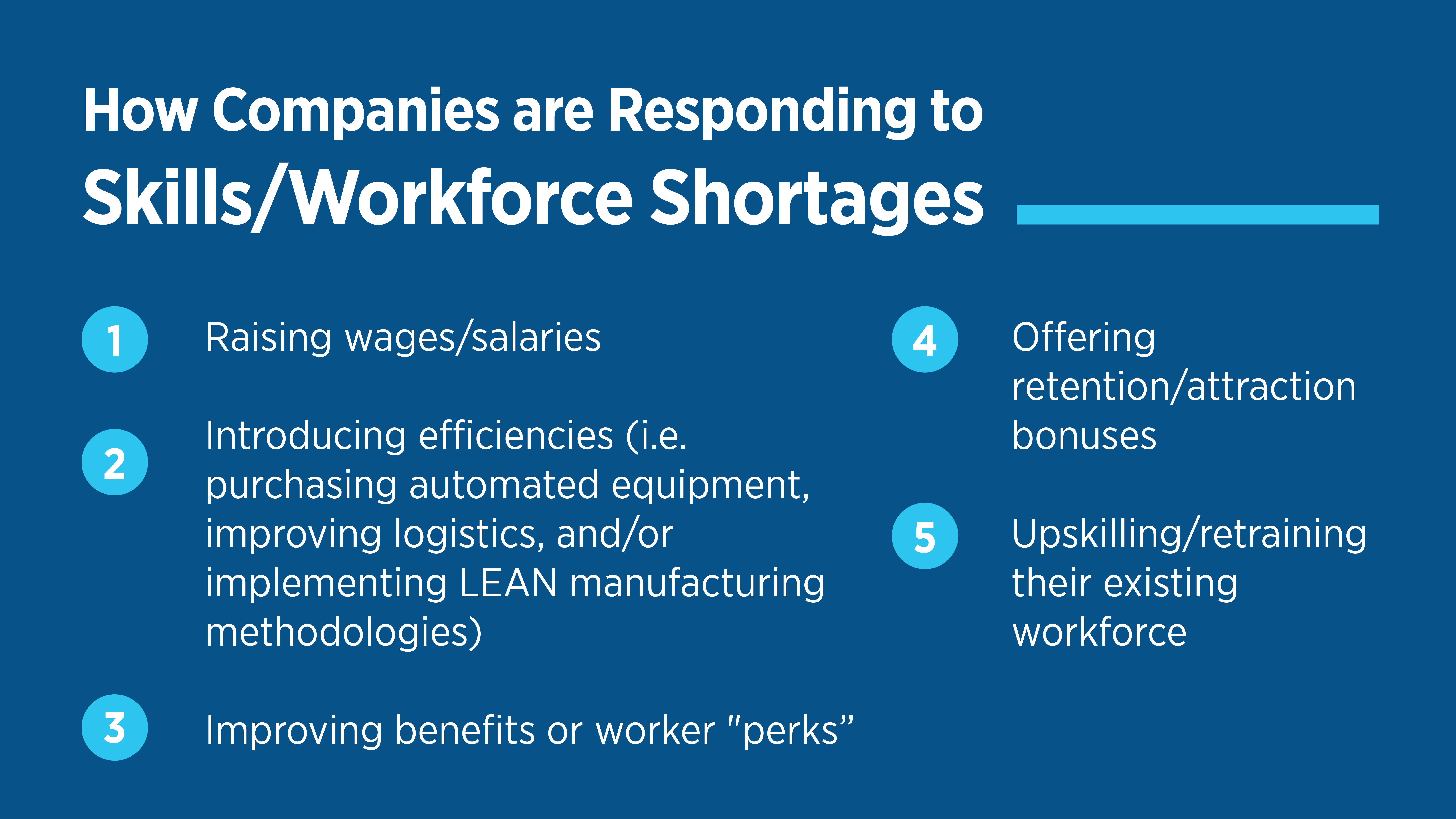The Global Chase for Talent
The Global Chase for Talent
November 17, 2021New research from the Site Selectors Guild focuses on how global talent shortages are impacting corporate location decisions and communities. The findings reveal 41% of Guild members believe skills shortages are the new normal, and manufacturing and transportation/warehousing will be the industries hit the hardest. Guild members also name six states they believe are implementing successful talent attraction and retention strategies and share mixed opinions on incentive programs aimed at luring talent rather than companies.
In addition to surveying Guild members, we also asked Guild Partners, who represent a variety of economic development organizations, for their perspective on the current skills shortages. Partners shared insight on how they are assisting local employers and how they are collaborating with others in the community to address workforce challenges.
Learn more about the findings of this research conducted in October 2021 below.
When asked how long the current skill shortages will last, 17% of Guild members said through 2022, 12% said through 2023, 17% said at least three years, 12% said at least five years and 41% said it’s the new normal.
The majority of the Guild’s economic development partners see skills shortages as a shorter-term problem, as 33% said through 2022, 27% said through 2023, 13% said at least three years, 3% said at least five years and 23% said it’s the new normal.

When asked which industries they expect will be most impacted by talent and/or skill shortages over the next five years, Guild members selected the following industries.

78% of Guild members say talent shortages are impacting where companies will consider investing in new or expanded facilities.
63% report companies are increasingly conscious of state and local laws and policies, such as social policies/laws, voting laws and mandates related to COVID-19 that could be hot-button issues for recruiting and retaining talent.

Guild members who believe talent incentives are a wise use of resources said the incentives can be an effective promotional tool – especially for rural or lesser-known communities – as well as a good way to attract a creative class. Consultants who thought these types of incentives are a waste of resources said the funds would be more effective if put into improving quality of life amenities that attract talent in the first place and believe these types of programs do not address the root cause of talent shortages.

Guild members reported that corporate clients are reacting to the skill and workforce shortages in a variety of ways – the top one being raising wages or salaries – with 83% of Guild members indicating this as a client response.

The Guild’s economic development partners shared strategies they are implementing to help address the skills shortages currently experienced by local employers, including:
- Talent attraction marketing (68%)
- Facilitating new training programs (65%)
- Establishing job boards or other local recruitment tools (58%)
Economic developers also shared examples of the types of partners they are most collaborating with to help address local workforce shortages (pictured to the right).


Latest News & Media
Two New States Join the Map as REDI Sites Announces Round Three Designations
- Author: Rachel Barvi
Site Selectors Guild Appoints Samantha Jefferson as Managing Director
- Author: Rachel Barvi
Site Selectors Guild Awards Internationally Recognized Certified Site Selection Consultant™ Credential
- Author: Rachel Barvi
